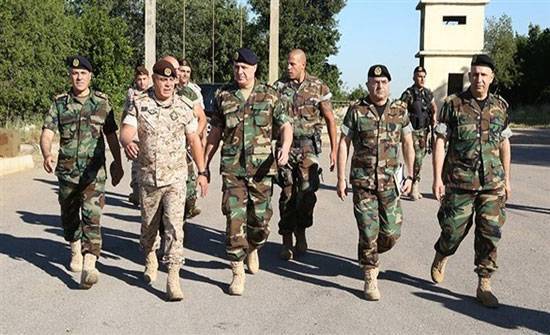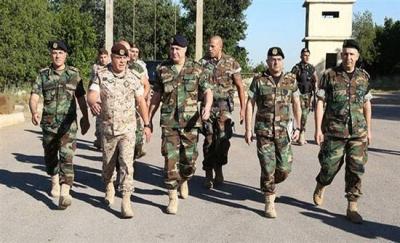The French Ministry of Armed Forces announced on Tuesday that Paris will host an international online meeting on June 17 to rally support for the Lebanese Army, which is struggling to navigate an economic crisis pushing it to the brink of collapse. France, which leads efforts to assist Lebanon, aims to increase pressure on the country's bickering politicians following unsuccessful attempts to urge them to agree on a new government and initiate much-needed reforms to secure financial aid from abroad.
Dissatisfaction is growing among Lebanese security forces regarding the collapse of the currency, which has wiped out most of their salary values. The Commander of the Lebanese Army, General Joseph Aoun, visited France last month to warn of an increasingly intolerable situation, leading France to provide food and medical supplies to soldiers whose salaries have dropped five to six times, forcing some to take on additional jobs.
According to two diplomatic sources, the meeting will seek support from countries providing food, medical supplies, and spare parts for military equipment, but it will not target the provision of weapons or other military gear. The ministry stated, "The goal is to draw attention to the situation of the Lebanese Armed Forces, whose members are facing deteriorating living conditions and may no longer be able to fully perform their duties, which is essential for the stability of the country."
It added that it will host the meeting alongside the United Nations and Italy, aiming to encourage fundraising efforts for the Lebanese Army. Invitations have been extended to countries from the International Support Group for Lebanon, which includes Gulf Arab nations, the United States, Russia, China, and European powers.
The value of the Lebanese pound has plunged by 90% since late 2019 in a financial collapse that poses the largest threat to the country's stability since the civil war that lasted from 1975 to 1990. The army is often viewed as a rare institution of national pride and unity. Its collapse at the beginning of the civil war, when it divided along sectarian lines, led Lebanon into the rule of armed factions.




